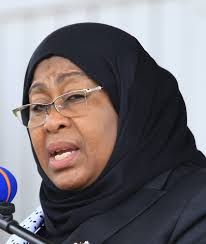Introduction
Tanzanian President Samia Suluhu Hassan is carving her place in history as the first female leader of Tanzania, taking office in March 2021 after the death of President John Magufuli. Her presidency is significant not only because of her gender but also due to her unique approach to governance and diplomacy in East Africa.
Background and Rise to Power
Before her presidency, Samia Suluhu Hassan served as the vice president under Magufuli. She has been actively involved in Tanzanian politics for over two decades, initially gaining recognition as a member of parliament in 2000. President Hassan was educated at the University of Dar es Salaam and has also held various ministerial roles, showcasing her as a seasoned politician with extensive experience.
Policy Initiatives and Achievements
Since assuming the presidency, Hassan has embarked on various initiatives aimed at improving the economic landscape of Tanzania. One of her notable actions has been addressing the COVID-19 pandemic more transparently, shifting from the previous administration’s stance that downplayed the virus. She has emphasized the importance of vaccinations and has encouraged partnerships with international health organizations.
Additionally, President Hassan has prioritized infrastructure and socio-economic projects, including improvements in health care, education, and women’s empowerment programs. Her efforts to engage more with neighboring countries and international partners also signify a shift in Tanzania’s foreign policy, promoting regional cooperation and investment.
Challenges Ahead
Despite her progressive initiatives, President Hassan faces significant challenges. The political landscape in Tanzania is still overshadowed by authoritarian tendencies and opposition suppression. Delivering on her promises in the face of economic constraints due to the pandemic and a legacy of deep-rooted issues from the previous administration presents a significant hurdle. Nonetheless, Hassan’s government aims to revive and build the economy while maintaining political stability.
Conclusion
President Samia Suluhu Hassan’s time in office marks a pivotal moment for Tanzania as she continues to break barriers in a traditionally male-dominated political environment. Her proactive stance on health and economic recovery, alongside her commitment to basic rights, including women’s empowerment and regional diplomacy, signifies a moment of potential transformation for the country. Observers worldwide will watch closely to see how her leadership shapes Tanzania’s future in the coming years, as she navigates the complexities of governance in a rapidly changing environment.
